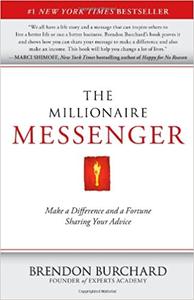
 |
 The Oxford Handbook of Innovation Management (Oxford Handbooks) by Oxford University Press; Reprint edition English | June 30, 2015 | ISBN: 0198746490 | 720 pages | AZW3 | 6.60 Mb The Oxford Handbook of Innovation Managementoffers a comprehensive and timely analysis of the nature and importance of innovation and the strategies and practices that can be used to improve organizational benefits from innovation. Innovation is centrally important for business and national competitiveness, and for the quality and standard of living around the world, but it does not happen by itself. For innovation to succeed, it needs to be properly managed. With contributions from 49 world-leading scholars, theHandbookexplores the many sources of innovation, the broader social, economic, and technological contexts that encourage and constrain it, and the cutting-edge strategies and practices of innovation management.  The Once and Future Queen: Guinevere in Arthurian Legend by Nicole Evelina English | November 20th, 2017 | ISBN: 0996763228 | 336 pages | True EPUB | 1.61 MB Guinevere's journey from literary sinner to feminist icon took over one thousand years...and it's not over yet.  The Nature of Reasoning by Jacqueline P. Leighton, Robert J. Sternberg English | 2003 | ISBN: 0521810906 | 480 pages | PDF | 67,1 MB Reasoning to the mind is like breathing to the lungs. We are constantly doing it, but rarely take notice. If it fails, however, we are paralyzed. Imagine being unable to infer conclusions from a conversation or being unable to reach a solution to an important life problem.  The Myth of International Order: Why Weak States Persist and Alternatives to the State Fade Away by Arjun Chowdhury English | Jan 2, 2018 | ISBN: 0190686715, 0190686723 | 272 pages | PDF | 4,5 MB In February of 2011, Libyan citizens rebelled against Muammar Qaddafi and quickly unseated him. The speed of the regime's collapse confounded many observers, and the ensuing civil war showed Foreign Policy's index of failed states to be deeply flawed-FP had, in 2010, identified 110 states as being more likely than Libya to descend into chaos. They were spectacularly wrong, but this points to a larger error in conventional foreign policy wisdom: failed, or weak and unstable, states are not anomalies but are instead in the majority. More states resemble Libya than Sweden.  The Modern Middle East: A Political History since the First World War By Mehran Kamrava 2005 | 510 Pages | ISBN: 0520241495 | PDF | 6 MB The first succinct and authoritative overview of the making of the modern Middle East, this lucid book brings a valuable mix of historical perspectives and contemporary analysis to a wide audience of readers seeking expert knowledge about this troubled and fascinating region. Giving a rich perspective on the region's historical and political evolution, the book traces the influence of factors such as religion, culture, and economics and illuminates events and topics currently in the news. With its broad thematic sweep and its balanced presentation of contentious issues, it is essential reading for general readers and students who want to better understand the world today. Mehran Kamrava sets the stage with a concise discussion of the evolution of Islam and the religion's profound role in the region. He then looks at, in turn, the rise and fall of the Ottomans, the trials of independence and state-building, the emergence and fiery spread of nationalism, the two Arab-Israeli wars of 1967 and 1974, the Iranian Revolution, and the two Gulf Wars and beyond, including discussion of the invasion of Iraq by the United States. After tracing the consequences of these historical events for a host of political phenomena, Kamrava gives detailed attention to three pivotal issues: the challenges of economic development, the Palestinian-Israeli conflict, and the question of democracy. He also examines issues that will shape the future: population growth, environmental pollution, and water scarcity. Illustrations: 26 b/w photographs, 5 maps  Brendon Burchard, "The Millionaire Messenger: Make a Difference and a Fortune Sharing Your Advice" English | ISBN: 1451665997 | 2011 | 176 pages | MOBI | 475 KB The #1 New York Times bestseller from world-renowned advice expert teaches everyday people how to share their story and wisdom with the world and build a lucrative business doing so.  Chris Waters, "The Men Who Raised the Bar: The evolution of the highest individual score in Test cricket" English | 2021 | ISBN: 147297753X | 272 pages | EPUB | 9.9 MB Few sporting records capture the imagination quite like that of the highest individual score in Test cricket. It is the blue riband record of batting achievement, the ultimate statement of stamina and skill.  John A. McDougall, "The McDougall Program: 12 Days to Dynamic Health" English | ISBN: 0452266394 | | 448 pages | PDF | 9 MB A groundbreaking diet book from the bestselling author of The Starch Solution and The Healthiest Diet on the Planet  The Manifesto for Teaching Online by Sian Bayne, Peter Evans English | 2020 | ISBN: 0262539837 | 274 Pages | PDF | 9.16 MB  The Making of England: A New History of the Anglo-Saxon World (Library of Medieval Studies) by Mark Atherton 2017 | ISBN: 1784530050, 1838604030 | English | 352 pages | EPUB/PDF (True) | 6 MB/18 MB During the tenth century England began to emerge as a distinct country with an identity that was both part of yet separate from 'Christendom'. The reigns of Athelstan, Edgar and Ethelred witnessed the emergence of many key institutions: the formation of towns on modern street plans; an efficient administration; and a serviceable system of tax. Mark Atherton here shows how the stories, legends, biographies and chronicles of Anglo-Saxon England reflected both this exciting time of innovation as well as the myriad lives, loves and hates of the people who wrote them. He demonstrates, too, that this was a nation coming of age, ahead of its time in its use not of the Book-Latin used elsewhere in Europe, but of a narrative Old English prose devised for law and practical governance of the nation-state, for prayer and preaching, and above all for exploring a rich and daring new literature. This prose was unique, but until now it has been neglected for the poetry. Bringing a volatile age to vivid and muscular life, Atherton argues that it was the vernacular of Alfred the Great, as much as Viking war, that truly forged the nation. |